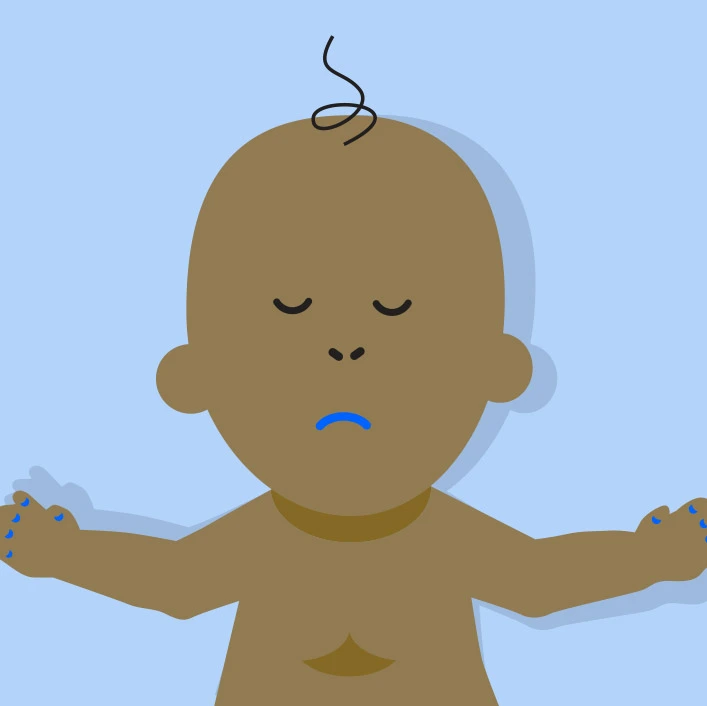RSV is the leading cause of hospitalizations in all infants. Know the signs and symptoms that may indicate worsening illness and when to contact your child’s healthcare provider.
What Are the Symptoms of RSV?
People who become infected with RSV show symptoms within four to six days after the virus enter the body. Initial signs of RSV are similar to mild cold symptoms, including sneezing, runny nose, fever, cough and decrease in appetite. Very young infants may be irritable, fatigued and have breathing difficulties. These symptoms do not usually all show up at the same time, instead they come in stages. Normally these symptoms will clear up on their own in a few days.
A barking or wheezing cough can be one of the first signs of a more serious illness. In these instances, the virus has spread to the lower respiratory tract, causing inflammation of the small airways entering the lungs. This can lead to pneumonia or bronchiolitis.
RSV Symptoms that Require Urgent Care
- Difficult breathing
- Not drinking enough
- Decreased activity
- Nasal flaring
- Bluish lips & fingernails
Infants with severe RSV will have short, shallow and rapid breathing. This can be identified by "caving-in" of the chest in between the ribs and under the ribs (chest wall retractions), "spreading-out" of the nostrils with every breath (nasal flaring), and abnormally fast breathing. In addition, their mouth, lips and fingernails may turn a bluish color due to lack of oxygen.
How RSV Is Diagnosed
Because RSV symptoms are similar to other respiratory viruses that spread during the fall in winter, your healthcare provider might order testing to determine which virus you have based on your medical history, time of year and a physical exam. This helps a healthcare provider determine the correct treatment if you fall into a high-risk category for specific respiratory viruses. If your healthcare provider does test to confirm the diagnosis, they will use a salt water solution that is inserted into your nose and then gently suctioned out or a nose swab to collect a sample and look for viruses.
In severe RSV cases that require hospitalization, additional testing may be needed. Imaging tests, such as a chest X-ray or CT scan can check for lung complications. Blood and urine cultures may be necessary when infants are very sick, as RSV-related bronchiolitis can occur with a urinary tract infection in newborns.
Parents Share Their RSV Stories
When to See Your Doctor
Page last updated: January 27, 2026



